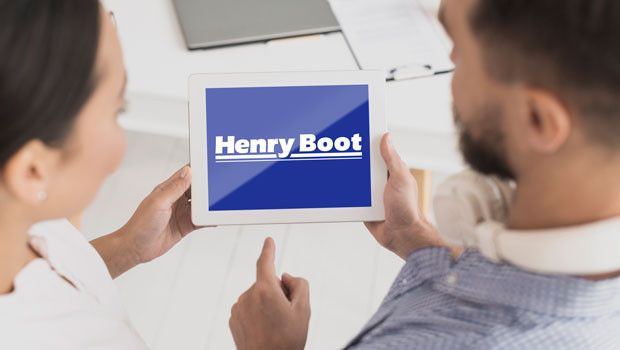Henry Boot confident despite fall in first-half profits

Henry Boot
204.00p
10:34 07/03/25
Henry Boot, a UK-based company specialising in land promotion, property investment and development, and construction, reported strong land and property sales in its interim results on Tuesday, although its profitability declined.
FTSE All-Share
4,666.71
13:00 07/03/25
FTSE Small Cap
6,576.75
13:00 07/03/25
Real Estate Investment & Services
2,414.95
12:59 07/03/25
The London-listed firm said that during the first half, it completed and exchanged on land and property sales totaling £150.8m, up from £129.3m in the same period last year.
Despite the strong sales, the company faced a lower starting forward sales position, resulting in a decrease in revenue to £106m from £179.8m in the first half of 2023.
Profit before tax also declined to £3.7m, down from £25m in the prior year, while underlying profit stood at £3.6m compared to £23.3m in the first half of 2023.
Henry Boot said it remained optimistic about the rest of the year, having completed, exchanged, or reserved 81% of its budgeted sales for 2024.
The remaining deals were either under offer or in detailed negotiations, positioning the company to meet its annual targets.
In line with its progressive dividend policy, the firm increased its interim dividend by 5% to 3.08p per share.
Capital employed grew 1.7% to £424m, advancing toward the company's medium-term target of £500m.
The return on capital employed (ROCE) was reported at 1.4%, down from 6.3% in the first half of 2023.
However, the company said it expected ROCE to finish the year only slightly below its target range of 10% to 15%, adding that it remained confident of achieving the returns in the medium term.
Net debt increased to £103.9m from £77.8m at the end of December, primarily due to funding infrastructure works to unlock strategic land sites and building out its development programme.
Gearing stood at 25.5%, but had since reduced to about 18% as of 16 September, bringing it back within the company's optimal range of 10% to 20%.
In its land promotion segment, Henry Boot sold 843 plots, with an additional 1,695 plots exchanged and 1,070 plots under offer.
The company said it was on track to sell 3,000 plots by the end of the year, up from 1,944 plots in December, while the total land bank slightly increased to 101,491 plots.
Its property investment and development division reported a committed development program with a gross development value (GDV) of £264m, 64% of which was pre-sold or pre-let.
The development pipeline stood at £1.5bn, with 57% focussed on industrial and logistics markets.
It said the market value of the investment portfolio, including joint ventures, marginally increased by 0.3% to £113.2m.
Stonebridge Homes, the company's residential arm, secured 95% of its 2024 delivery target of 275 units, up from 251 units in 2023.
The total owned and controlled land bank for Stonebridge Homes was 1,407 plots, aligning with the company's growth objectives.
Its construction segment achieved a turnover of £43.5m and an operating profit of £2.9m.
While those figures represented a decrease from the prior year, the company said it continued to secure new contracts and projects.
Henry Boot also reported progress in its responsible business strategy, set in January 2022, as it remained on course to achieve its 2025 objectives and targets.
“During the first half of the year we have started to see an improvement in our markets and this together with our focus on prime land and development, plus premium homes has helped us to achieve relatively strong property sales,” said chief executive officer Tim Roberts.
“The lower forward sales with which we started the year has affected our first half financial performance and as flagged at the time of our 2023 results, we expect 2024 to be heavily weighted towards the second half.
“With 81% of budgeted sales already completed, exchanged or reserved, we remain on track to perform in line with market expectations for the full year.”
Roberts said the company remained confident in its key markets, and had “significant” latent value in its development and land portfolio which was held at cost, as well as “plenty of opportunity” to grow in order to meet its stated medium-term targets.
“This, together with our rock solid balance sheet underpins our decision to raise the interim dividend by 5%.”
Reporting by Josh White for Sharecast.com.